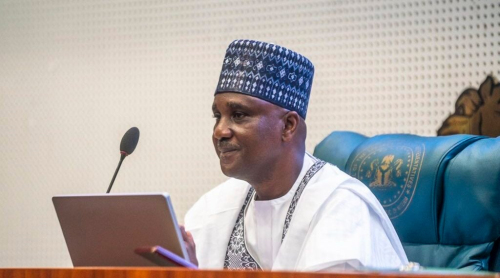Reps Reintroduce Controversial NGO Bills

House of Representatives has renewed moves to regulate non-governmental organisations (NGOs) and civil society organisations (CSO) operating in the country, with the re-introduction of NGO Bill.
The proposed legislation, entitled: “Bill for an Act to establish non-governmental and civil society organisation agency for the promotion of social development activities in Nigeria and for related matters,” seeks to compel international and national NGOs, as well as CSOs operating in the country to register and submit to their operations to government scrutiny.
The legislation, which is awaiting second reading, prescribes a fine of N500,000 or/ and two years imprisonment for defaulters.
The NGO Bill, which has been reoccurring in the House since 2017, was first introduced in the Green Chamber in the Eight Assembly. However, it could not progress beyond the committee stage, due to widespread condemnation. The NGO regulation bill was also reintroduced in the Ninth Assembly, but could also not progress beyond the committee stage.
The current NGO bill, sponsored by Sada Soli, an All Progressives Congress (APC) member from Kastina State, is proposing the establishment of the non-governmental and civil society agency, which shall be saddled with the responsibility of regulating the activities of NGOs and CSOs.
It will empower the agency to register, as well as facilitate and coordinate the work of all national and international NGOs, operating in the country.
It will also maintain a register of all NGOs in the country and advice the government on the activities of NGOs and their roles in development within the country.
Similarly, the agency shall conduct regular review to determine the consistency in the reports submitted by the NGOs and CSOs and provide policy guidelines to NGOs and CSOs among others.
The bill requires NGOs and CSOs to obtain the approval of relevant ministries before embarking on any programme or project, as well as register same with the proposed non-governmental and civil society.
According to the bill, every NGOs and CSOs registered by the agency shall be issued with a certificate of registration within 90 days, while any organisation not registered cannot operate in the country.
Specifically, Section 24(1) of the proposed legislation stipulates that “every certificate issued to an organisation be in the prescribed form and shall, unless cancelled, be valid for a period of two years from the date of issue.”
Furthermore, Section 27 (1) requires NGO and CSO operating in the country to renew its registration every two years, while “failure to renew will amount to termination of operations and may lead to deletion of the name of the organisation from the register.
Also, Section 27( 5) states that the organisation must collect a clean certificate from the national security office and submit same to the agency before approval for renewal. Section 27(6) prescribes that “at the time of issuing a new certificate under this session, the agency may vary the terms and conditions attached to the certificate.”
Nevertheless, Section 32(2) of the bill states that the proposed legislation, shall not apply to the contributions and cooperation of natural and legal persons as volunteers, political parties, trade associations, social organisation, military bases and religious worship centres.
Section 34 of the proposed legislation states “it shall be an offence for any person to operate a NGO for welfare, health relief, agriculture, education, industry, the supply of amenities or any other similar purposes without registration and certificate under this Act.
“A person convicted of an offence under this Act shall be liable to a fine of not exceeding N500,000 or to an imprisonment of 24 months or both.
“Any person who has been convicted of offence under this Act shall be disqualified from holding office in any NGO for a period of 10 years.”



